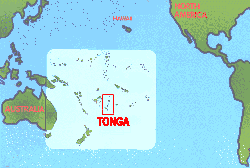
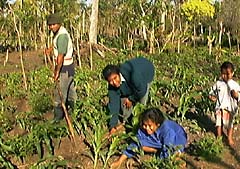
The natural plant and animal life are limited, but include hibiscus plants and flying foxes, a species of bats. Domestic animals include horses, cattle, pigs, and chickens. Marine life is abundant and provides an important source of food.


Western-style houses, usually constructed from wood with corrugated tin roofs, are common in urban areas. Housing in rural areas is a combination of Western-style dwellings and "fales", traditional Tongan homes constructed of woven coconut leaves.
Western-style clothing is coomon for everyday use. Women typically wear dresses and men are required by law to wear t-shirts in public areas.
The national currency is the pa'anga, which is equal to 100 seniti. Increased imports in recent years have created a trade deficit. However, tourism, money sent home from Tongans working abroad, and external aid help offset the negative balance of payments, allowing Tonga to maintain a reasonably well-balanced budget. Great Britain, New Zealand, and Australia are the principal aid donors.
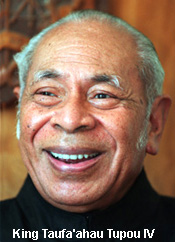
The Tongan islands were peobably settled from Fiji about 3500 years ago. Tonga developed as a highly stratified society with the social classes and paramount chiefs. Warfare was common as the chiefs competed to expand their respsctive domains.
In 1616 Dutch explorers became the first Europeans to visit Tonga. Thay were followed by the British explorer Captain James Cook, who made 3 visits between 1773 and 1777; Cook named Tonga the Friendly islands; due to the welcome he recieved. Wesleyan Methodist missionaries arrived from England in th e1820's and began a succesful conversion of the islanders. The missionaries converted paramount chief Taufa'ahau Tupou in the 1830s and he persuaded others to follow. Tupou, who became known as George Tupou 1, consilidated three chief lines and founded the monarchy in 1875. Upon his death he was succeeded by his grandson, George Tupou II. Owing to internal strife on the islands, Tonga and Great Britain negotiated a treaty of Friendship and protection in 1900, establishing Tonga as a British protected state. Great Britain had a great influence over the kingdom for the next seven decades, but the country was never formally colonized. When Tupou II died in 1918, his daughter Queen Salote Tupou III succeeded to the throne. She in turn succeededn by her son, the current monarch, King Taufa'ahau Tupou on June 4, 1970, Tonga became completely independant of Great Britain.
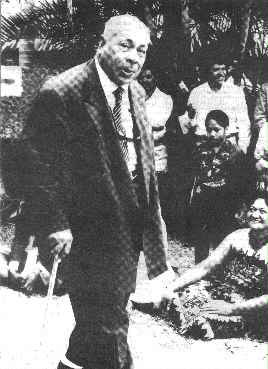
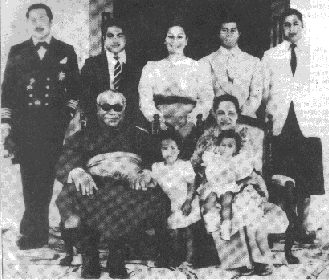
Pictures shown above is the current monarch(on the left) and the Tongan Royal Family.
RECENT DEVELOPMENT.
Tonga's relatively high level of high education has made some Tongans dissatisfied with the political structure. Insisting that the monarch has outlived it's time, these Tongans organized a political organization, the pro democracy movement, in November 1992 and held a pro-democracy convention that same month. It was boycotted by the monarchy and the government refused to allow publicityof the event or grant visa to foreign speakers. The pro-democracy movement formed the people's party in 1994, Tonga's first political party.
Back to main page..